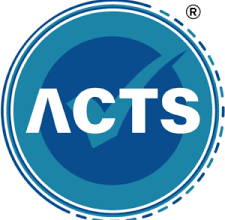In this article we are going to discuss How to Become Fluent in English in 30 Days? Achieving fluency in English in just 30 days is an ambitious goal, but with dedication, effective strategies, and a well-structured plan, it is possible to make significant progress. Fluency involves multiple aspects such as speaking, listening, reading, and writing.
How to Become Fluent in English in 30 Days
This article provides a detailed roadmap to help you become proficient in English within a month.
1. Set Clear Goals
Before embarking on this journey, it is essential to set clear, achievable goals. Determine what fluency means to you. Is it the ability to hold a conversation, understand movies without subtitles, or write essays effortlessly? Establishing specific targets will help maintain your motivation and focus.
Create a Study Plan
A well-organized study plan is crucial. Divide your 30 days into four weeks, each with a specific focus. Allocate time daily for different language skills—speaking, listening, reading, and writing. Ensure your schedule is realistic and consistent, allowing for both intensive study and regular practice.
Week 1: Immersion in English
In the first week, immerse yourself in the English language. Immerse yourself in English by watching movies, listening to podcasts, and reading books or articles.Choose materials that interest you to make the process enjoyable. Pay attention to pronunciation, intonation, and vocabulary. Additionally, start a vocabulary journal to jot down new words and phrases.
2. Listening and Speaking Practice
Listening is a vital component of language learning. Spend at least an hour daily listening to English. Podcasts, audiobooks, and news channels are excellent resources. Concentrate on grasping the context, main ideas, and specific details. Repeat phrases to improve your pronunciation and intonation.
Also Check: 10 Best Educational Websites in the World
For speaking practice, engage in conversations with native speakers or language partners. Join online language exchange platforms or conversation groups. Engage in daily speaking practice, even if it involves talking to yourself. Record your voice and listen to it to identify areas that need improvement.
Week 2: Building Vocabulary and Grammar
In the second week, concentrate on expanding your vocabulary and understanding grammar rules. Use flashcards, vocabulary apps, or spaced repetition systems to learn new words. Concentrate on learning words that are pertinent to your daily life and interests.
Grammar is the backbone of any language. Study essential grammar rules, such as verb tenses, sentence structure, and common phrases. Utilize grammar exercises and quizzes to strengthen your understanding. Remember, the goal is to communicate effectively, so don’t get bogged down by perfection.
3. Reading and Writing Practice
Reading extensively enhances vocabulary and comprehension skills. Choose a variety of reading materials—novels, newspapers, blogs, and academic articles. Aim to read for at least 30 minutes daily. While reading, underline unfamiliar words and look them up later. Summarize what you’ve read to enhance understanding and retention.
Writing helps consolidate what you’ve learned. Start a daily journal, write essays, or compose emails in English. Focus on clarity and coherence. Use online tools or language exchange partners for feedback on your writing.
Also Check: Top Websites in the World
Week 3: Intensive Speaking and Listening
In the third week, intensify your speaking and listening practice. Participate in more conversations, join language clubs, or attend English-speaking events. Practice storytelling or describing your day in detail. The more you practice speaking, the more confident you will become.
For listening, challenge yourself with different accents and faster speech. Watch interviews, documentaries, and TED talks. Try to comprehend without subtitles initially, and then rewatch with subtitles to catch any missed details. Shadowing, a technique where you repeat what you hear in real-time, can also be very effective.
4. Pronunciation and Accent Reduction
Pronunciation is key to being understood. Focus on difficult sounds and practice them repeatedly. Use online resources like YouTube tutorials, pronunciation apps, or language labs. Record yourself speaking and compare it to native speakers. Accent reduction techniques, such as mimicking native speakers and practicing tongue twisters, can also be beneficial.
Week 4: Advanced Skills and Real-World Practice
In the final week, hone your advanced skills and apply what you’ve learned in real-world scenarios. Engage in debates, discussions, or presentations in English. This will improve your ability to think and respond quickly in the language.
Writing should also reach an advanced level. Write opinion pieces, detailed reports, or creative stories. Experiment with different writing styles and tones. Seek feedback from native speakers or use online writing communities to get constructive criticism.
5. Consistent Review and Practice
Review what you’ve learned regularly. Revisit vocabulary, grammar rules, and corrected writing pieces. Consistent practice is crucial for retention and mastery. Utilize language apps that offer daily practice exercises to keep your skills sharp.
6. Using Technology and Resources
Leverage technology to aid your learning. Language learning apps such as Duolingo, Babbel, and Memrise provide structured lessons.Online platforms like Coursera or edX provide English courses from reputable institutions. Additionally, use social media, language exchange apps, and online forums to practice English with native speakers.
7. Motivation and Mindset
Staying motivated is essential. Celebrate small victories and progress milestones. Surround yourself with positive affirmations and remind yourself of the benefits of being fluent in English. Maintain a growth mindset—embrace mistakes as learning opportunities and persist through challenges.
Conclusion
Becoming fluent in English in 30 days is a challenging but achievable goal with the right approach. By setting clear goals, creating a structured study plan, and dedicating time to intensive practice, you can make significant strides in your language proficiency. Remember, consistency and perseverance are key. Embrace the journey, stay motivated, and enjoy the process of learning. With dedication and the right strategies, you will find yourself communicating confidently in English by the end of the month. So now I hope you understand about How to Become Fluent in English in 30 Days.




